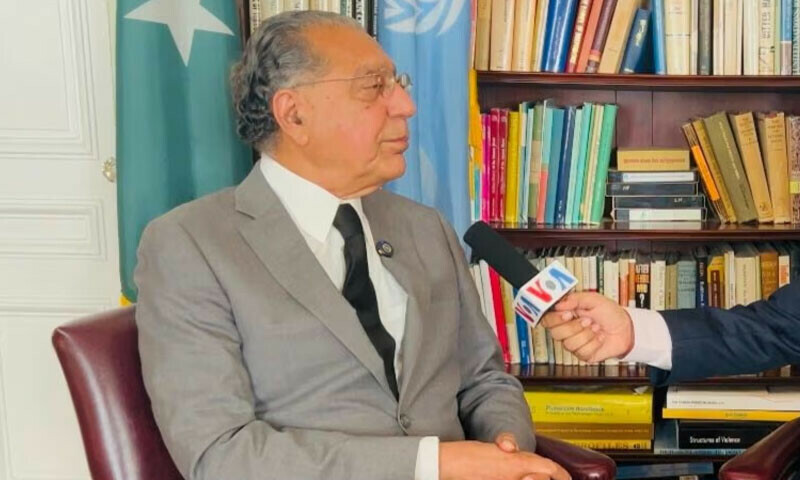Pakistan’s Permanent Representative to the United Nations, Munir Akram, has reiterated the country’s commitment to maintaining ties with the Taliban, despite existing differences. In an interview with a US broadcaster, Akram emphasized that the Afghan people’s challenges should not be blamed on the Afghan government, highlighting Pakistan’s longstanding relationship with its neighbor.
He stressed that Pakistan has consistently advocated for engagement with Afghanistan, noting that diplomacy aims to transform situations through dialogue and effective policy. While acknowledging the Taliban’s missteps, Akram underscored the need for a collaborative strategy to address both internal and external issues facing Afghanistan.
During his address to the United Nations Security Council (UNSC), Ambassador Akram raised concerns about the escalating terrorist threat from Afghanistan, particularly highlighting the Tehreek-e-Taliban Pakistan (TTP), which Pakistan labels as Fitna al-Khawarij. He warned that the TTP is rapidly expanding its influence with the backing of the Afghan interim government, equipped with advanced weaponry and forming alliances with other insurgent groups, including secessionist factions like the Majeed Brigade.
Pakistan is apprehensive that the TTP’s growing ties with Al-Qaeda could soon position it as a central player in regional and global terrorism. The ambassador expressed Pakistan’s willingness to work with regional and international entities to combat this rising threat, while Islamabad continues its nationwide crackdown on the TTP.
Furthermore, Akram criticized the Afghan interim government for ongoing human rights abuses, particularly against women and girls, condemning Kabul’s failure to uphold promises related to gender equality. He pointed out that such regressive policies not only violate Islamic values but also obstruct Afghanistan’s potential for international engagement.
A recent UN report supports Pakistan’s concerns, revealing that the TTP has gained increasing support from the Taliban and operates with an estimated force of 6,000-6,500 fighters in Afghanistan. The report indicated that, despite international pressure, the Taliban have not taken adequate measures to rein in the TTP, further complicating the security landscape in the region.



